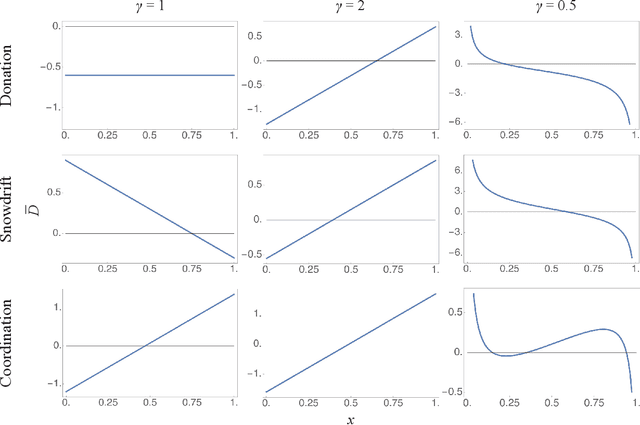Hiroaki Chiba-Okabe
Probabilistic Analysis of Copyright Disputes and Generative AI Safety
Oct 02, 2024Abstract:This paper presents a probabilistic approach to analyzing copyright infringement disputes by formalizing relevant judicial principles within a coherent framework based on the random-worlds method. The approach provides a structured analysis of key evidentiary principles, with particular emphasis on the "inverse ratio rule"--a controversial doctrine adopted by some courts. Although this rule has faced significant criticism, a formal proof demonstrates its validity, provided it is properly defined. Additionally, the paper examines the heightened copyright risks posed by generative AI, highlighting how extensive access to copyrighted material by generative models increases the risk of infringement. Utilizing the probabilistic approach, the Near Access-Free (NAF) condition, previously proposed as a potential mitigation strategy, is evaluated. The analysis reveals that while the NAF condition mitigates some infringement risks, its justifiability and efficacy are questionable in certain contexts. These findings demonstrate how a rigorous probabilistic approach can advance our understanding of copyright jurisprudence and its interaction with emerging technologies.
Social learning with complex contagion
Jun 21, 2024



Abstract:We introduce a mathematical model that combines the concepts of complex contagion with payoff-biased imitation, to describe how social behaviors spread through a population. Traditional models of social learning by imitation are based on simple contagion -- where an individual may imitate a more successful neighbor following a single interaction. Our framework generalizes this process to incorporate complex contagion, which requires multiple exposures before an individual considers adopting a different behavior. We formulate this as a discrete time and state stochastic process in a finite population, and we derive its continuum limit as an ordinary differential equation that generalizes the replicator equation, the most widely used dynamical model in evolutionary game theory. When applied to linear frequency-dependent games, our social learning with complex contagion produces qualitatively different outcomes than traditional imitation dynamics: it can shift the Prisoner's Dilemma from a unique all-defector equilibrium to either a stable mixture of cooperators and defectors in the population, or a bistable system; it changes the Snowdrift game from a single to a bistable equilibrium; and it can alter the Coordination game from bistability at the boundaries to two internal equilibria. The long-term outcome depends on the balance between the complexity of the contagion process and the strength of selection that biases imitation towards more successful types. Our analysis intercalates the fields of evolutionary game theory with complex contagions, and it provides a synthetic framework that describes more realistic forms of behavioral change in social systems.
Tackling GenAI Copyright Issues: Originality Estimation and Genericization
Jun 05, 2024



Abstract:The rapid progress of generative AI technology has sparked significant copyright concerns, leading to numerous lawsuits filed against AI developers. While some studies explore methods to mitigate copyright risks by steering the outputs of generative models away from those resembling copyrighted data, little attention has been paid to the question of how much of a resemblance is undesirable; more original or unique data are afforded stronger protection, and the threshold level of resemblance for constituting infringement correspondingly lower. Here, leveraging this principle, we propose a genericization method that modifies the outputs of a generative model to make them more generic and less likely to infringe copyright. To achieve this, we introduce a metric for quantifying the level of originality of data in a manner that is consistent with the legal framework. This metric can be practically estimated by drawing samples from a generative model, which is then used for the genericization process. Experiments demonstrate that our genericization method successfully modifies the output of a text-to-image generative model so that it produces more generic, copyright-compliant images.
An Economic Solution to Copyright Challenges of Generative AI
Apr 24, 2024



Abstract:Generative artificial intelligence (AI) systems are trained on large data corpora to generate new pieces of text, images, videos, and other media. There is growing concern that such systems may infringe on the copyright interests of training data contributors. To address the copyright challenges of generative AI, we propose a framework that compensates copyright owners proportionally to their contributions to the creation of AI-generated content. The metric for contributions is quantitatively determined by leveraging the probabilistic nature of modern generative AI models and using techniques from cooperative game theory in economics. This framework enables a platform where AI developers benefit from access to high-quality training data, thus improving model performance. Meanwhile, copyright owners receive fair compensation, driving the continued provision of relevant data for generative model training. Experiments demonstrate that our framework successfully identifies the most relevant data sources used in artwork generation, ensuring a fair and interpretable distribution of revenues among copyright owners.
 Add to Chrome
Add to Chrome Add to Firefox
Add to Firefox Add to Edge
Add to Edge